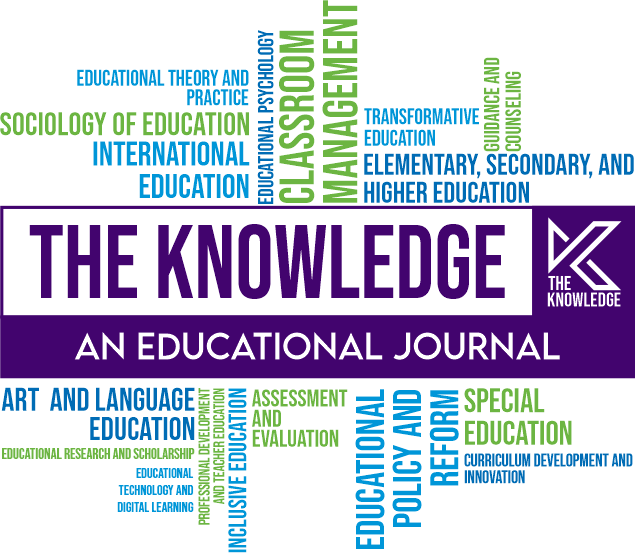Investigating the Needs of Students Guidance and Counseling at University Level
DOI:
https://doi.org/10.63062/tk/2k23a.22905Keywords:
Students Guidance, Counseling, University, Education, Loralai, Balochistan, Education ProgramsAbstract
The present study was planned to investigate the need for student guidance and counselling at the university level. The study was delimited to the University of Loralai only. The main objectives of the study were to investigate the relationship guidance needs of the students at the university level, to explore the health guidance needs of the students at the university level, and to identify the moral guidance needs of the students at the university level. The study population was all students at the University of Loralai. One hundred students from the university were taken as samples. The questionnaire was constructed and included different areas of relationship guidance, health guidance, and moral guidance needed for the student's guidance and counselling. This study identifies that students face problems in peer relationships with other students. Students are fully aware of their local culture and values and know how to deal with the opposite gender. It is difficult for students to control their emotions, and they need guidance regarding this. Students can solve their personal problems through guidance and counselling. The study recommends peer relationship improvement programs, health education programs, counselling services, stress reduction workshops and emotional management support. The university could establish counselling services or workshops that focus on emotional intelligence and stress management. The university continues offering guidance and counselling services for students to help them solve personal problems and cope with psychological complications. Ensure that these services are easily accessible
References
Bernes, K. B., Bardick, A. D., & Orr, D. T. (2007). Career guidance and counselling efficacy studies: An international research agenda. International Journal Educational Vocational Guidance, 7(7), 81-96. https://doi.org/10.1007/s10775-007-9114-8
Brown, J. (1999). Does guidance have a future? Notes towards a distinctive position. British Journal of Guidance and Counselling, 27(2), 275-282. https://doi.org/10.1080/03069889908256270
Cinotti, D. (2014). Competing Professional Identity Models in School Counseling: A Historical Perspective and Commentary. Professional Counselor, 4(5), 417-425. https://doi.org/10.15241/dc.4.5.417
Dimmitt, C., & Wilkerson, B. (2012). Comprehensive school counselling in Rhode Island: Access to services and student outcomes. Professional School Counseling, 16(2), 2156759X0001600. https://doi.org/10.1177/2156759x0001600205
Dogan, S. (2000). The Historical Development of Counseling in Turkey. International Journal for the Advancement of Counseling, 22(4), 57-67. https://link.springer.com/article/10.1023/A:1005474126819
Dogar, A., Hussain, A., Azeem, M., Majoka, M. Iqbal, & Mahmood, A. (2011). Need Assessment of Students Guidance and Counseling. British Journal of Arts and Social Sciences, 1(2), 12-20. https://www.semanticscholar.org/paper/Need-Assessment-of-Students%27-Guidance-and-Dogar-Azeem/b96b12cba2fab6d1510feb43d4148bfcd31848e8
Hornby, G. (2003). Teachers and Counselling. In Hornby, G., Hall, C., and Hall, E. (Eds). Counselling Pupils in Schools: Skills and Strategies for Teachers. RoutledgeFalmer. https://doi.org/10.4324/9780203182772
Learning, P., & InfoBits, K. (2015). Encyclopedia Britannica. Retrieved from https://www.britannica.com/topic/distance-learning
Makinde, O. (1984). Foundations of Guidance and Counselling. London: Macmillan Publishers Ltd.
Mutie, E. K., & Ndambuki, P. (2004). Guidance and Counseling for Schools and Colleges. Nairobi: Oxford University Press.
Nwachukwu, D. N. (2007). The teacher counsellor for today's school. Calabar: University of Calabar Press.
Parikh, S., & Gurvinder, K. (2016). Role of guidance and counselling in student development. Journal of Education and Practice, 7(10), 102-107.
Rashid, M., & Joseph, M. (2002). Allied Material of Educational Guidance and Counseling (Vol. 1).
Rogers, C. (1961). On becoming a person: A therapist's view of psychotherapy. L. Constable.
Turner, S. L., & Lapan, R. T. (2018). Comprehensive guidance and counselling programs: A call to action. Professional School Counseling, 22(1), 1-7.
UNESCO. (2002). New Roles and Challenges for Guidance and Counselling. Paris.
Whiston, S. C., Sexton, T. L., & Lasoff, D. L. (1998). Career-intervention outcome.
Yousaf, M., & Yousaf, S. (2004). Psychology (Vol. 1). Lahore: G.F.
Published
Issue
Section
License
Copyright (c) 2025 Copyright in the THE KNOWLEDGE is retained by the author(s). Authors also grant any third party the right to use the article freely as long as its integrity is maintained and its original authors, citation details and publisher are identified.
This work is licensed under a Creative Commons Attribution-NonCommercial 4.0 International License.







